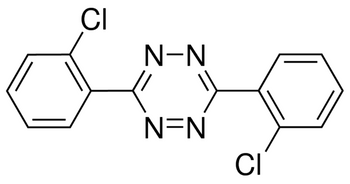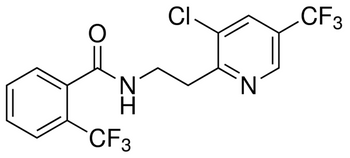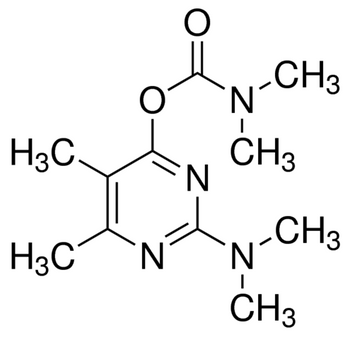Description
Permethrin PESTANAL, analytical standard
-
CAS Number 52645-53-1
-
Empirical Formula (Hill Notation) C21H20Cl2O3
-
Molecular Weight 391.29
-
Beilstein/REAXYS Number 5765325
-
EC Number 258-067-9
-
MDL number MFCD00041809
-
PubChem Substance ID 329756835
Properties
| Related Categories | Additional Standards, Alpha Index of All Pesticide Standards, Analytical Standards, Analytical/Chromatography, EPA, Endocrine Disruptors (Draft), Insecticides, Method and Regulation Specific, N-P, Pesticide Class, Pesticides & Metabolites Standards, Pesticides, suspected to harm bees, Pyrethroids, Synthetic Pyrethroid |
| grade | analytical standard |
| description | mixture of cis and trans isomers |
| InChI Key | RLLPVAHGXHCWKJ-UHFFFAOYSA-N |
| product line | PESTANAL |
| form | neat |
| shelf life | limited shelf life, expiry date on the label |
| application(s) | HPLC: suitable |
| gas chromatography (GC): suitable | |
| Featured Industry | Agriculture Environmental |
| format | neat |
General description
Permethrin belongs to the pyrethroid class of insecticides.[1]
Application
Permethrin may be used as an analytical reference standard for the determination of permethrin in:
• Virgin olive oil samples by liquid-liquid extraction (LLE) or low-temperature precipitation followed by Sep-Pak alumina-N column clean-up and analysis using gas chromatography equipped with electron capture detector (GC-ECD).[1]
• Whole blood samples by electron ionization GC coupled to mass spectrometry (MS) operating in selected ion monitoring (SIM) mode.[2]
• Tomato sample extracts by high performance liquid chromatography (HPLC) with post-column photoderivatization and acetonitrile chemiluminescence based detection.[3]
• Water samples by ultrasound-assisted emulsification-extraction (UAEE) and GC-negative ion chemical ionization (NCI) MS.[4]
• Apple juice samples by matrix solid-phase dispersion (MSPD) and GC-MS.[5]





